-
Seoul will be providing the “Special COVID-19 Loan,” a total of KRW 15 billion, to social economic enterprises (social enterprises, cooperatives, village companies, etc.) that are suffering from a dramatic drop in sales following the COVID-19 outbreak. Each company can receive an urgent transfusion of up to KRW 300 million at the lowest rate of 0.5% to relieve the scarcity of funds. The support will begin being distributed by the end of April following the selection of the execution institution (among social financial institutions).
According to the survey with 179 social economic enterprises located in Seoul conducted by the Seoul Metropolitan Government, sales have dropped for over 98% of the companies and more than halved for 71%. Nevertheless, many social economic enterprises remain in blind spots when it comes to the government’s support as their economic foundations, such as security and credit, are fragile compared to those of regular companies, and as they are rarely categorized as a damaged industry.
[“Special COVID-19 Loans” Based on Social Finance: Interest Rate and Conditions for Loans] Companies with Confirmed Cases Directly Damaged Companies Indirectly Damaged Companies Limit of Loan Up to KRW 300 million for a social economic enterprise
(Based on the balance of bonds)Interest Rate 0.5% 1.0% 1.5% Secondary Preserve 2.5% 2.0% 1.5% Conditions for Loans 2-year deferment and 4-year repayment Aside from the special loan, Seoul will be implementing the “Financial Aid Business” (for the support of personnel expenses, business development costs, and more), which the city has been regularly executing, with a concentration on the recovery from the damage caused by COVID-19. Social economic enterprises that have been directly damaged by a drop in sales and other factors will be preferentially selected and their burden of employment will be alleviated by the expanded support for personnel expenses for 1 additional worker (2.4 workers per pre-existing company on average).
Seoul announced the “COVID-19 Urgent Support Plan for Social Economy Enterprises,” where the aforementioned contents are included as main points, and declared that the city will prevent the foundation of social economic enterprises, which have surmounted difficulties to be rooted in our society, from being threatened by the COVID-19 crisis.
The plan is composed of ① the special loans for companies affected by COVID-19, ② the preferential selection of damaged companies for the Financial Aid Business, ③ the expansion of market support, including early public purchase, and ④ the establishment and the operation of consultation channels for damages caused by COVID-19.
First, a total of KRW 10 billion will be provided as the “Special COVID-19 Loan” based on the social investment fund of Seoul that is of the largest scale in the country. According to the level of the damage, companies can receive low-rate loans of up to KRW 300 million (including loans for the repayment of existing financial obligations), at an interest rate of 0.5-1.5% (0.5% for those with confirmed cases, 1.0% for those directly damaged, and 1.5% for those indirectly damaged; on condition of 2-year deferment and 4-year repayment).
Compared to the loans from the pre-existing social investment fund, the interest rate has been sharply cut (3% → the lowest 0.5%) while the maximum amount of loans (KRW 200 million → KRW 300 million) and the loan period (5 → 6 years) have been increased.
The companies that already received the loans from the social investment fund can receive benefits, such as the extension of the term of up to 1 year and the loans for the repayment of existing financial obligations.
After supplying the “Special COVID-19 Loans,” Seoul will be considering additional support depending on the scale of the damages and the demand for funds afterwards.
Second, when selecting the social economic enterprises that will benefit from the “Financial Aid Business,” the municipal government will check the damages, such as the rate of decline in sales, to pick and help the recovery of the companies that are more harshly affected. The selection will be made in May.
Third, Seoul will take action to expand the market to prepare a sustainable management/distribution environment for social economic enterprises. In April, the city will spend 50% of KRW 30 billion, the budget for the public purchase of articles, for pursuing early purchase. In September and October, the “In-Seoul Market” that will be held at Ttukseom, Deoksugung Stone Wall Path, and other locations will establish and operate the Special Sale Zone for companies hit by the COVID-19 pandemic.
Finally, since March 2, the “consultation channels dedicated to social economic enterprises” have been operated so that companies can report the damages caused by COVID-19 and get consultation on the finance, tax, and support policies. Here, companies can fast receive information and experts’ advice lest they fail to benefit from diverse supports implemented by the central government and the Seoul Metropolitan Government for companies in need.
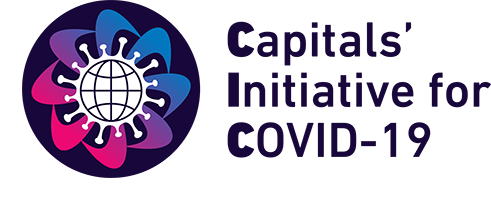

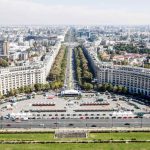
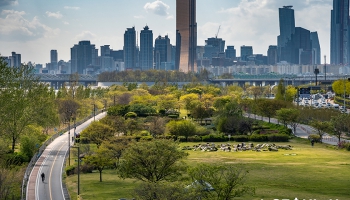
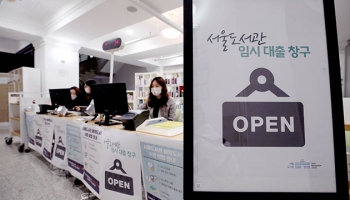
![SEOUL [Intensive “Social Distancing,” a Battle between Life and Death]](https://capitalsinitiative.com/wp-content/uploads/thumbs_dir/여의도한강공원아이서울유-scaled-1whq2o5fygxtjuebtqvyxu83ki3lofgdt1tpan9vhin8.jpg)
![SEOUL [Social Distancing Saves Many Lives]](https://capitalsinitiative.com/wp-content/uploads/thumbs_dir/I-SEOUL-U-scaled-1wgwvd59iw8sh25fqg98ak695xig7b0aav7jjj7k7yqs.jpg)
